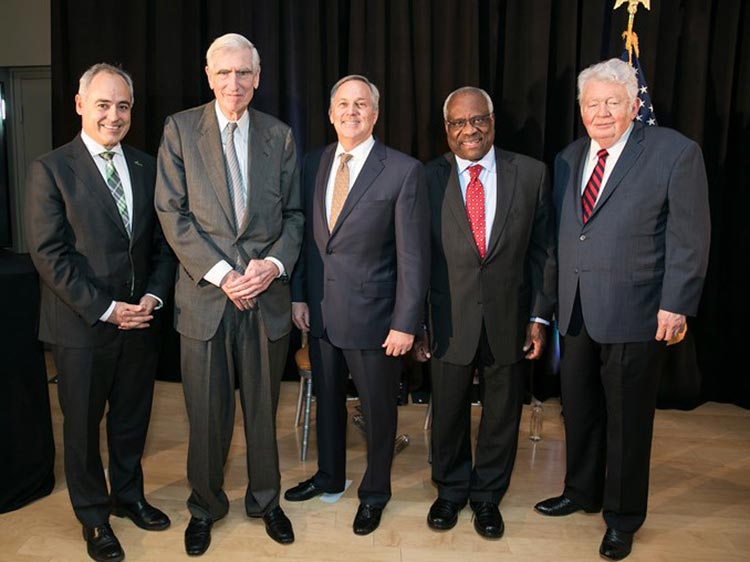Justice Thomas Joins C. Boyden Gray Center Dedication

The C. Boyden Gray Center for the Study of the Administrative State at the Antonin Scalia Law School at George Mason University’s Arlington Campus was dedicated Tuesday, April 24.
U.S. Supreme Court Justice Clarence Thomas, U.S. Judges Douglas H. Ginsburg and David B. Sentelle, Mason President Ángel Cabrera, Scalia Law School Dean Henry N. Butler, center director Adam White, and C. Boyden Gray spoke as part of the program.
Gray, a former ambassador to the European Union under President George W. Bush, is a longtime attorney in public and private practice and is a Distinguished Adjunct Professor at Scalia Law. He recently made a $3 million naming gift to the center.
“It is fitting that the Center for the Study of the Administrative State now bears Ambassador Gray’s name,” said Butler. “Much of Boyden’s stellar career in private practice and public service has been involved with various aspects of the administrative state.”
The center fosters legal scholarship on the modern administrative state, the Constitution, and regulatory laws by scholars from around the country. The center’s work is intended to improve discussions of essential conversations in courts, Congress, the executive branch and states, and is presented in public forums, published scholarship and classroom teachings.
“The Administrative State and its supporting doctrines have long outgrown their Constitutional bounds,” said Gray. “This relegates Congress to the role of subordinate—and making it irrelevant in some cases—divesting the courts of their Constitutional and statutory duty to say what the law is, and depriving the President of his right and duty to see that the laws are faithfully executed…It will take years and much study to correct this unsustainable imbalance.”
Gray sees the center as “an indispensable component of effort to restore the Constitutional design,” he said. “There are other initiatives being launched to address this situation and it is an honor for me to be able to help the Scalia Law School make the kind of contribution I know Justice Scalia would have applauded.”